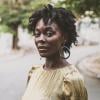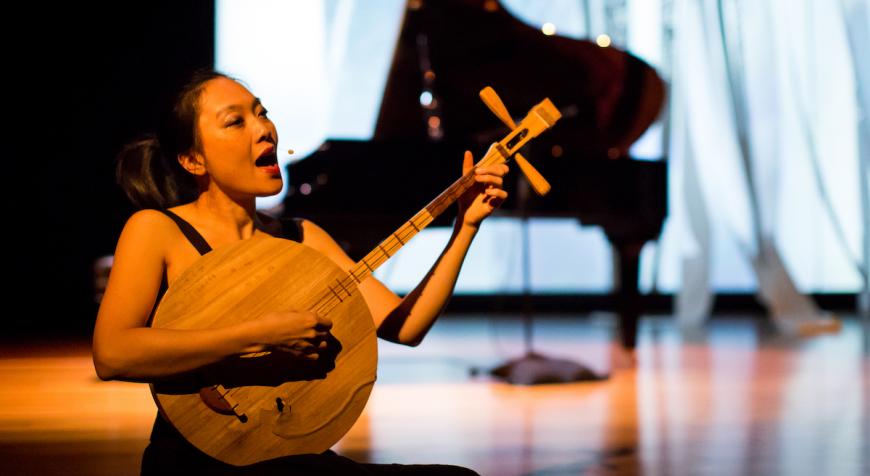
There is no one path into understanding the rich, entangled ways of Jen Shyu’s work. Experimental vocalist, composer, multi-instrumentalist, scholar, dancer — it can be overwhelming to a listener to experience the expansive web of musical and artistic lineages that she presents. Shyu’s work comes from an ethic of respectful study of many different musics and marries it to emotion to produce multilingual, multistyle pieces such as Zero Grasses and its album adaptation, released April 26 as Zero Grasses: Ritual for the Losses.
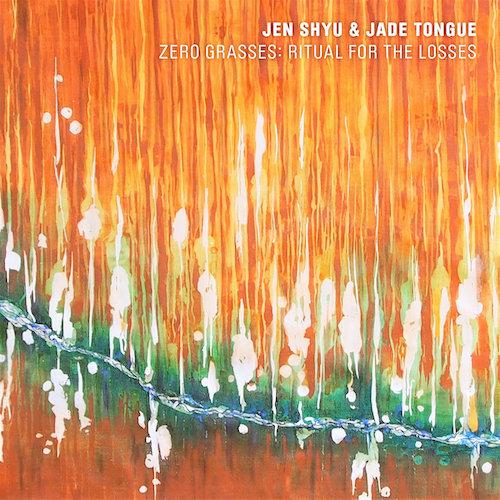
In Shyu’s work with her band Jade Tongue, which includes Ambrose Akinmusire on trumpet, Mat Maneri on viola, Thomas Morgan on bass, and Dan Weiss on drums, her compassion manifests via transformations in the project made in response to the pandemic and the continued protests for Black civil rights. It would have been easier to approach the album as an opportunity to rework and record all the fantastic songs that already existed as solo performance work, many of which are not on the album. She understands, however, that the personal issues that she was facing in Zero Grasses — her experiences of racism, sexism, and the rollercoaster of watching her own ideals of what kind of life she wanted radically change over time and tragedy— are reflected in the pain in the world today. That’s why she made the choices to write “Lament for Breonna Taylor,” bring in her choral piece Living’s a Gift (set to pandemic poetry by middle schoolers), and interpolate relevant songs from even earlier projects.
Shyu speaks 10 languages and spent years learning music in places like Cuba, Korea, East Timor, and Indonesia. The more you read about her career, the clearer it becomes that only a small part of her work is the product we hear. She seems to have no fear of dilution of her talent across all these different musical practices, a fear that causes many, especially with Shyu’s a classical background, to narrow their focus and specialize.
“Display Under the Moon” shows how she works. It’s a traditional Japanese biwa (short-necked lute) song that Shyu performs with Jade Tongue. Its emphatic recitative style has uncanny kinship to Shyu’s mercurial, speech-like rhythm in singing and it seems natural to hear the smooth flow between the language of the traditional Japanese music and the give and take of Jade Tongue.
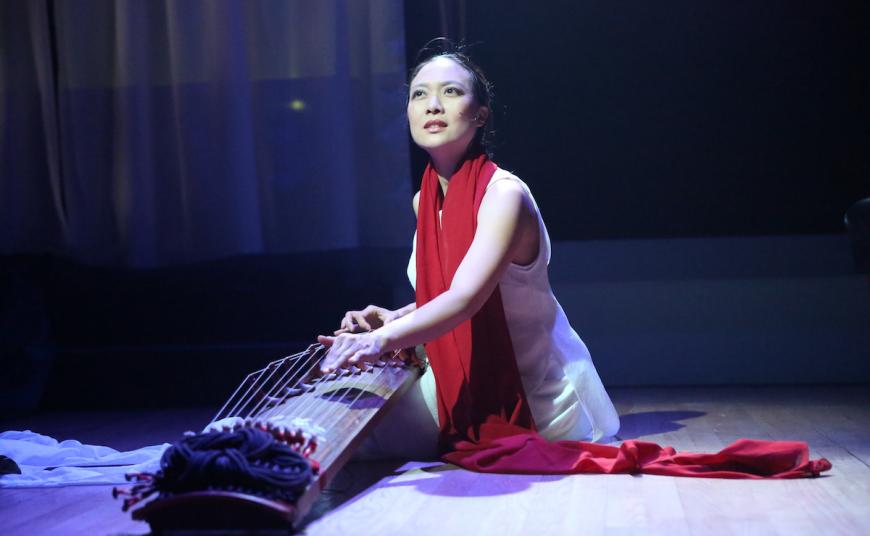
Both on the album and watching her during the live-streamed album release concert on April 6, you can hear Shyu’s clear commitment to the traditional techniques she studies, and I began to understand the purpose of her endeavors learning different musical cultures on their own terms. By diving deep, she is not taking from musical cultures; instead, she gives herself to become a footstep in their continuation.
In an interview back in 2019, Shyu talked about how Zero Grasses, commissioned by John Zorn and National Sawdust, started growing from her continued conversations with acclaimed Indonesian filmmaker Garin Nugroho, who directed her solo performance piece Solo Rites: Seven Breaths. It all began from their common concern for a future and a present that is full of “zeros”: the potential of barrenness in the natural environment, but also efforts toward “zero waste” and “zero tolerance of sexual harassment and inequity.” While this still rings true, two years later her final comment on the subject of “zeros” has taken on an eerie premonitory quality. She addresses her concern about “zero connections,” the facade of human connection through virtual means.
“So, what is the life you envision? Is it the life you’re living right now? How much time do we really have? We think we can predict with all of our tools and our friends and family at our fingertips, but then someone disappears when you’re really far away or even when you’re right next to each other. How do we regain a connection lost?”
While Shyu was studying music in Japan in 2019, her father died suddenly. Her process of reacting to and processing this loss is woven through Zero Grasses. She grapples not only with grief, but with the distances in time, generations, space that the death of a parent or elder makes so painfully clear. This song about this kind of life change will unfortunately resonate with a wide audience today.
Shyu wrote two pieces in 2020 that were folded into the album project — Living’s a Gift, commissioned by American Composers Forum for ChoralQuest and adapted from the choral work to fit Shyu and her band, and Lament for Breonna Taylor. The text of Living’s a Gift is an amalgamation of poetry written by Mimi Broderick’s middle school choir students at MS 51 William Alexander Middle School in Brooklyn. It is the only piece directly about living during this pandemic, but because it opens the album, it frames the rest of Shyu’s discourse on loss. Textually dense, increasingly I felt the accumulated weight of isolation on these kids as their words formed a cloud of bedroom adolescent musings.
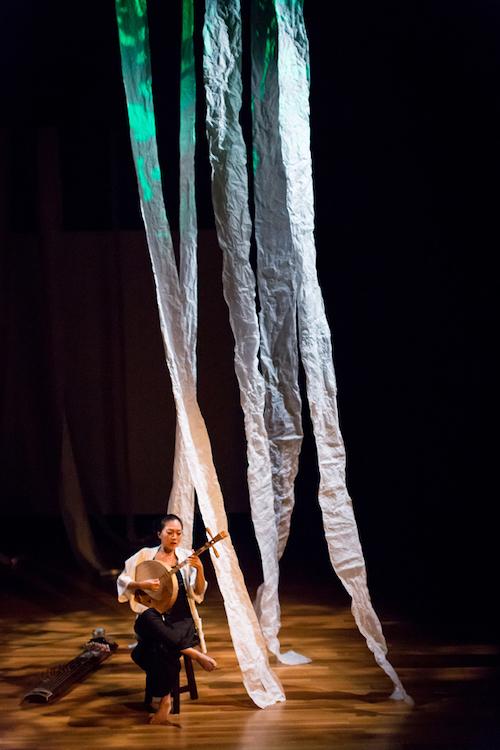
When she returned home after her father’s death, Shyu rediscovered some of her old diaries, which became a source of inspiration and lyrics in Zero Grasses. As with her work with the middle-schoolers, it’s clear that she has a lot of compassion for the voices of and the thoughts of young people, however clunky or clichéd their expression. Shyu incorporates the voice of her teenage self in “When I Have Power” and “Finally She Emerges,” as well as many pieces in her live performance.
“When I Have Power” is a rich combination of a diary entry written when she was 15 and a chant in Resuk, an indigenous language of Timor-Leste. On the day she wrote about, she was called a racial slur by a guy she had just sold candy bars to. She rages, she doesn’t understand why anyone would do that, and she declares, “when I’m famous, I’m gonna set things straight…when I have power, I’m gonna set things straight.” The chant is vengefully proud, perhaps representing indignant pride, but also in contrast with her young self’s will to prove herself powerful.
At the time she wrote the diary entry, Shyu must have thought of being famous as being a Broadway star, a concert pianist, or a ballet dancer, all things she had mastered by the time she was 13. In a song that she sang at the album release party at Roulette on April 6, but which was not included on the album, Shyu recounts an interaction with an older, white male actor who told her that she should come to New York because she would be the ultimate Kim in Miss Saigon. In Shyu’s diary entry from the time, she uncomfortably muses on how she would be perfect for those roles. The diary not critical of the older actor but reading these two songs together it’s clear that her teenage view of stardom has changed: in this album she’s rejecting that artistic pseudo-meritocracy in favor of a more personal aesthetic that emphasizes intertextuality. In “When I Have Power,” Shyu reaches back to her young self and connects her to Maria de Jesus, the Timorese woman she learned the chant from, to introduce them and to validate her young pride and righteous anger at racism.
In her liner notes, Shyu describes her album as a declaration of solidarity with women and people of color. This is most explicitly seen in her “Lament for Breonna Taylor,” which she constructed out of an amalgamation of different texts including phrases from interviews with Taylor’s mother. In it, I hear an incredible release of anger and pain stemming from the sheer evil that was perpetrated by the state, but also a barbed observation of the fear of violence inherent in being a person of color in this country, which only they can truly relate to.
I suspect it was also important for her to write this lament because Shyu is, on an aesthetic and practice level, a jazz vocalist. She works with some of the most preeminent jazz performers, like the incredible trumpeter Ambrose Akinmusire, and in her fashion of showing respect and gratitude to the musical traditions she is involved with, she may feel that she owes a lot of the discovery of her own expression to this Black American genre.
Both the sound of this album and her way of bringing things together is rooted in jazz. In jazz, individual players highlight their improvisatory skill and expression while merging in a unified sound with other players. It’s about the live mixing of different people and ideas. While there is complexity in all the different musical traditions that Shyu brings into her work, jazz as the common root between her and her collaborators opens up the space for Shyu to show up musically with all she has to give. In this sense, her statement of political solidarity also communicates a deep musical connection with musical tradition.
Shyu has become a master at connecting her own experiences with different people and cultures of the world she so clearly loves. To process her father’s death, she recruits her own recollections of watching a couple in crisis at a restaurant, the email she received from the sheriff notifying her of his death, and the Indonesian language she studied in her travels. To declare solidarity with the movement for Black lives, Shyu brings together her anger and grief, words of Breonna Taylor’s mother, and lyrics about the history of Chinese indentured servants who worked in Cuba alongside other kidnapped Africans.
In the interweaving of all these histories, words, feelings, entire languages, and song traditions lies Jen Shyu’s art.
Whether artists are conscious of it or not, they draw everything they make from an amalgamation of personal history and cultural circumstances. The key difference here is that experimental artists like Jen Shyu, Nathalie Joachim, and Raven Chacon are explicit in both the ways that elements of their world enter their music and are willing to put in the time to researching the true complexity of the interconnectedness they see.
Shyu is a responsible, rigorous, compassionate artist and she is doing the work we need.



